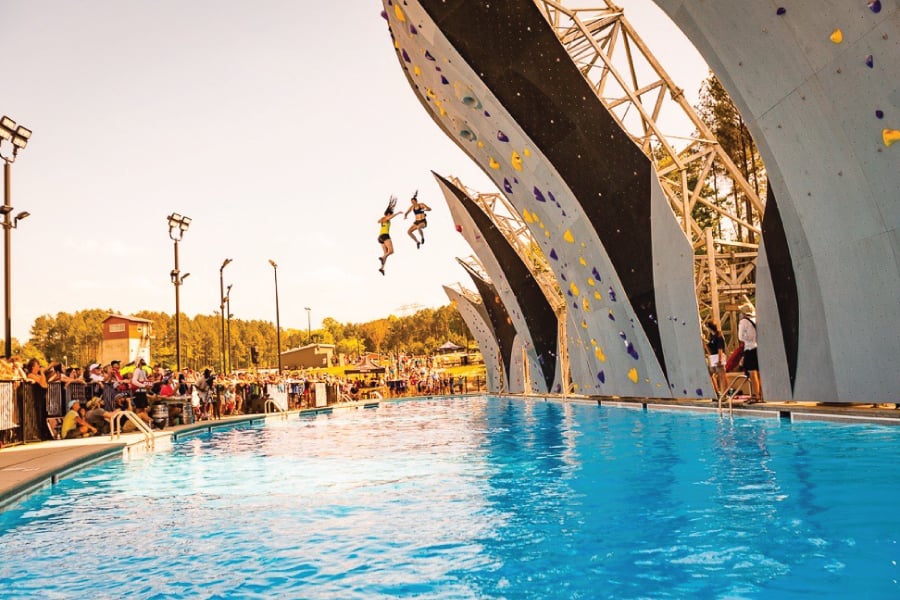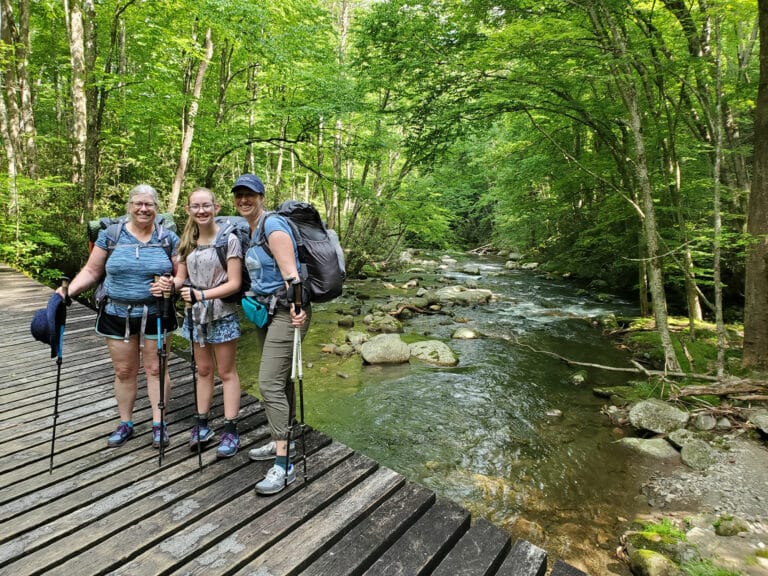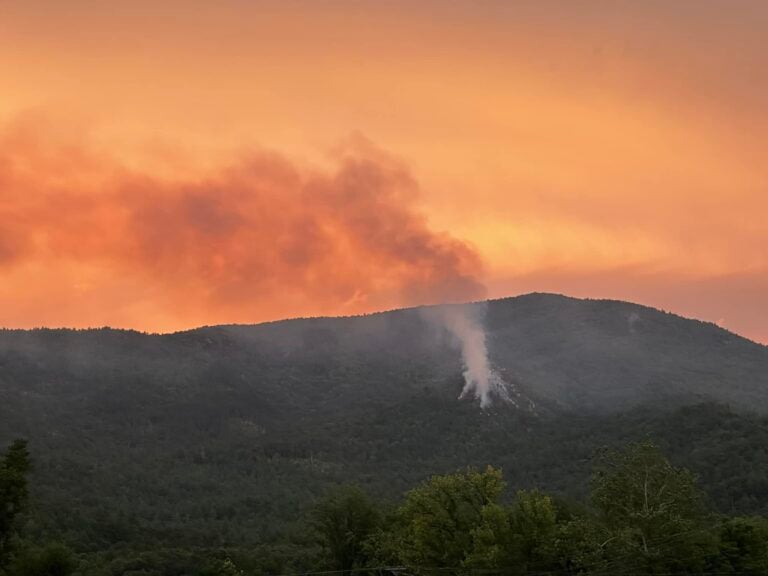This past April, the U.S. National Whitewater Center hosted Tuck Fest, a three day celebration of the outdoor lifestyle through competitions, demos, and live music. During this year’s event, the USNWC debuted the world’s first Deep Water Solo climbing complex, bringing together top climbers from across the country to compete for a piece of the $15,000 purse. Aaron Davis from Cliff Hangers (Mooresville, NC) and Kenny Benson from Inner Peaks (Charlotte, NC) were called in to set the routes for the inaugural competition. We caught up with them to get their thoughts on Deep Water Solo, Tuck Fest, and the impact of this climbing discipline.
What is Deep Water Solo?
Deep water soloing is a discipline of rock climbing, where a climber climbs over a pool of water. He/she is essentially climbing with no protection on the rock face, but is able to bail or take falls into the water as a “safe” way out. Obviously, you can still get injured if you fall incorrectly or fall from an extreme height. Any form of climbing is still considered dangerous.
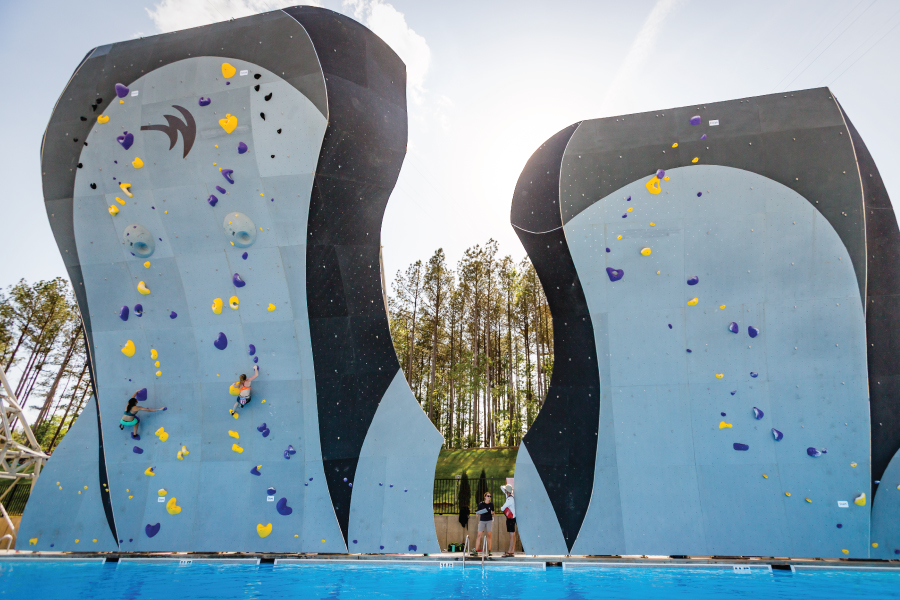
What are your goals when setting a DWS route?
We wanted to make the climbers move in a spectacular way, both for themselves and the crowd, but the first priority is the safety of the climbers. After we set a climb that challenges them and provides a show for the crowd, we double back to check that we haven’t asked them to do anything too risky. Again, this form of climbing is still dangerous, and our job as setters is to make sure the athletes can have a good time and stay healthy. If they get injured, the show stops and the dynamics of the event change.
How is it different than other route setting?
Aaron: First, you’re over water, so there’s always that factor of “don’t go in the water”. Keeping everything out of the water, not dropping any bits, screws, holds etc. Obvious things. Nevertheless, you also have to pay close attention to the movement you’re producing. Will this move cause any potential weird falls or a collision with another climber? What can happen if the climber misses this move or jumps here? Questions like these are the ones we were constantly asking to make sure we weren’t putting any climber in danger.  Kenny: For me, this was my first time setting an event of this size. The USNWC put up a sizable cash purse which attracted very talented climbers and a media outlet to promote the comp nationwide. With this, we needed to set something that would show the athletes and viewers a good time. This was our “coming out party” and we needed to make a statement that would put ourselves in a good position for growth next year.
Kenny: For me, this was my first time setting an event of this size. The USNWC put up a sizable cash purse which attracted very talented climbers and a media outlet to promote the comp nationwide. With this, we needed to set something that would show the athletes and viewers a good time. This was our “coming out party” and we needed to make a statement that would put ourselves in a good position for growth next year.
What did you think about the caliber of athletes that came out to climb at Tuck Fest this year?
The turnout this year was incredible. We had nationally recognized climbers competing alongside local crushers. Hopefully we can get more pros next year and keep this momentum going. We also hope to see more female competitors next time.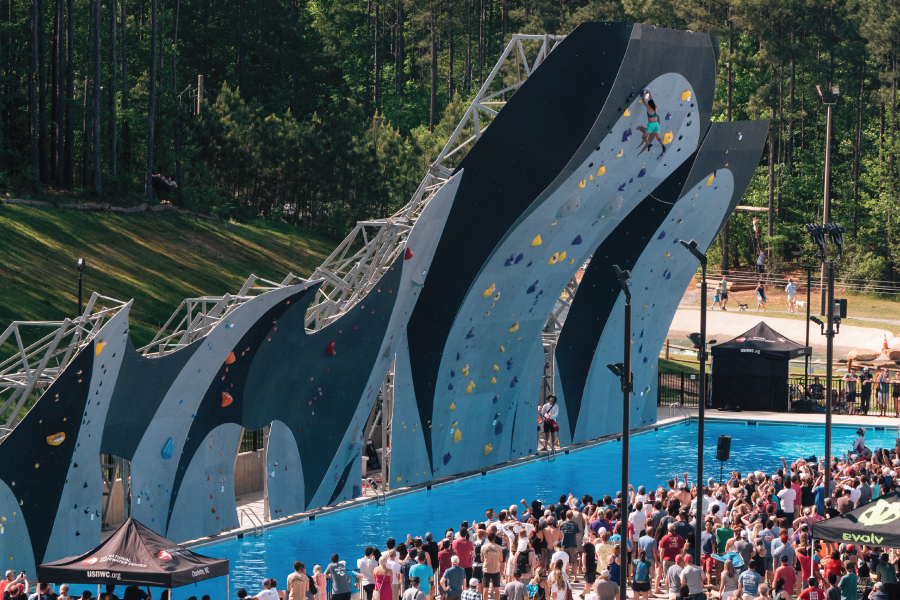
What does a competition like this do for the climbing community both regionally and worldwide?
These Deep Water Solo events are so much fun, not only for the athletes and setters, but the viewers as well. I know the crowd at Tuck Fest kept the energy high from start to finish. These events are easily understandable for the climbers in the crowd and the non-climbers. The added elements of speed and mental difficulty when in a head to head format comp makes the event exciting to watch while having an obvious winner at the end of each round.
2017 Tuck Fest Deep Water Solo Climbing Comp Results
Men’s Top 3 Finishers
1. Carlo Traversi
2. Nathaniel Coleman
3. Ben Hanna
Women’s Top 3 Finishers
1. Kyra Condie
2. Alex Johnson
3. Arabella Jariel
Tuck Fest 2018 will take place Friday, April 20th through Sunday, April 22nd at the U.S. National Whitewater Center.
